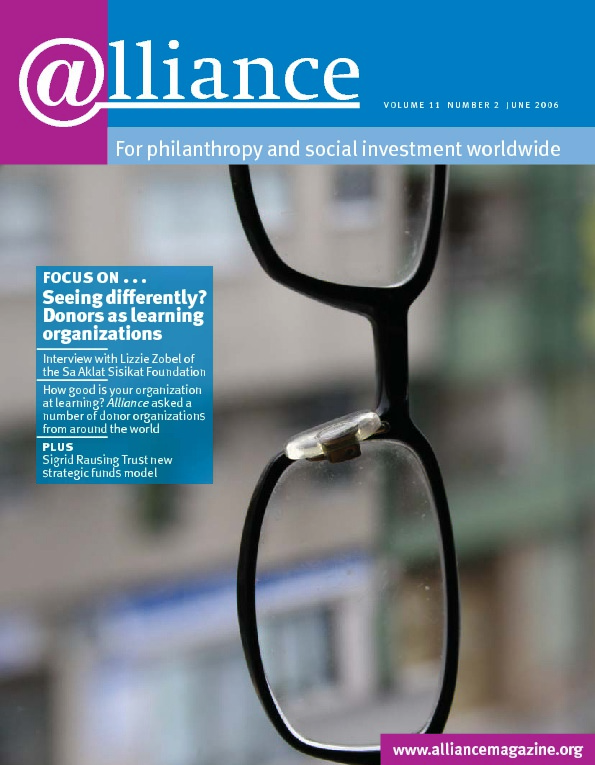One of the most frequently heard words in the foundation world these days is ‘measurable’, as in ‘We want to know the measurable outcomes of our grants’.
It seems like a reasonable enough request on the part of funders – a desire to document the results of an investment of funds in an organization or a project. After all, why shouldn’t foundations, or the public at large, want to know in numeric terms what benefits are produced by their grant funds? What seems like a straightforward request, however, turns out to be anything but, both for grantees and for civil society in general.
The concept of pursuing measurable outcomes is rooted in the increasingly popular idea of applying ‘the business model’ to civil society organizations. If businesses have to meet the test of being evaluated by bottom-line performance and ultimate profitability, so, the logic goes, non-profit organizations should have to meet some kind of similar test in terms of measurable outcomes.
But here is where the logic breaks down. Businesses are by definition profit-seeking enterprises. Their single test of success is elegantly simple: did you make money or not? The fundamental driver of the market system is quid-pro-quo exchange based on individual self-interest. Nothing wrong with that, but it is not the driver of civil society.
What is? In keeping with a common definition of civil society – the sphere in which private action produces public goods – there are many drivers and many tests of success. Civil society is inherently polymorphous. Moreover, social problems are immersed in a world of what philosophers (and others, including George Soros) call ‘reflexivity’ – the situation in which participants’ thinking affects both the definitions of the problems and the nature of the outcomes.
In practical terms, this means that civil society organizations must not only work in a world influenced by a vast number of variables – the sheer mathematics of which makes tracing causality an almost impossibly complex task – but also one involving very long time horizons and problem definitions that are shaped by multiple actors. To seek to extract from this complexity single strands of causality that relate particular grants to particular measured results seems to me essentially a fool’s errand.
Even organizations that have some goals amenable to measurement almost always have others that are not. For example, the work of a Big Brothers Big Sisters mentoring organization should not be assessed simply by their success in getting mentoring costs down or test scores up but on the often intangible qualities of interactions that take place between mentors and mentored and the organization’s ability to engage in the broader civic discourse of the community.
Similarly, the work of Meals on Wheels (an organization that delivers food to aged and infirm clients) cannot adequately be evaluated only in terms of the number of meals delivered. Any evaluation must also include the treasured conversations that take place between the volunteers and recipients. These effects cannot be captured by simplistic outcome measures.
In the worst case, the imposition of numeric tests of success not only misleads but actually distorts social goals. A current example of this in the United States is the vaunted national testing programme that seeks to improve public education through standardized testing. It is now widely acknowledged that teachers often ‘teach to the test’ to meet programme incentives and that educational programmes are being steered by narrowed curriculum objectives that may generate the desired scores but detract from broader educational goals. The measurable outcomes are thus shaping American education in unintended ways.
This is not to say that all efforts to measure the work of civil society organizations are futile; thoughtful consideration of data can sometimes be an important part of understanding what an organization is accomplishing. But the important point is that such data is only part of the story. Let’s not risk shooting ourselves in the foot by promising something that we cannot deliver, and, indeed, should not try to deliver.
Bruce Sievers is a Visiting Scholar at Stanford University and former Executive Director of the Walter and Elise Haas Fund. Email brsievers@onemain.com


Comments (0)